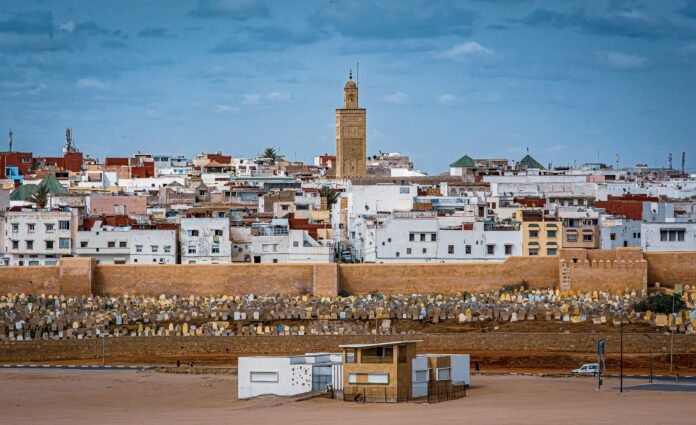Equatorial Guinea’s healthcare system features a stark divide between public and private health insurance offerings, with significant differences in access, quality, and scope of services. Understanding these distinctions helps paint a clear picture of the challenges and options faced by citizens, expatriates, and businesses in the country.
Public Health Insurance: Limited Structure and Coverage
Equatorial Guinea does not have a well-established or widely publicized national public health insurance program. The government provides public healthcare through a network of state-run hospitals and clinics. These services are generally subsidized and intended to serve the general population. However, due to limited infrastructure, medical supplies, and qualified personnel, public healthcare facilities often struggle to deliver high-quality care. In some cases, access to care is determined by employer contributions to social security, but even this system lacks the robustness seen in other African nations with structured public insurance programs.
Private Health Insurance: Tailored, Comprehensive, and Expat-Focused
In contrast, private health insurance in Equatorial Guinea is relatively well-developed and primarily targets expatriates, multinational companies, and wealthier locals. Companies such as ASCOMA, Allianz Worldwide Care, Cigna Healthcare Africa, April International, and Indigo Expat offer diverse and flexible insurance plans. These plans often include comprehensive inpatient and outpatient coverage, maternity and dental care, preventative services, and critical emergency features such as medical evacuation and repatriation—services that public healthcare cannot adequately support.
Private providers often operate under international standards, and many have strong regional or global networks, ensuring policyholders can access quality care both within and outside the country. For example, ASCOMA offers tailored solutions for individuals and businesses, while Allianz and Cigna emphasize international coverage for corporate clients. These insurers frequently collaborate with local entities to meet regional regulatory standards and customer needs.
Key Similarities and Shared Challenges
Despite their many differences, both public and private systems face common challenges related to the overall health infrastructure in Equatorial Guinea. High-quality care and advanced medical procedures are often unavailable locally, making medical evacuation a crucial component of comprehensive care regardless of insurance type. Both sectors are also affected by geographic disparities, with services in urban areas like Malabo and Bata being far superior to those in rural regions.
Top Public Health Insurance Options in Equatorial Guinea
Equatorial Guinea, located in Central Africa, has a relatively limited public healthcare system compared to more developed nations. The public health insurance framework is still evolving, and universal healthcare is not fully implemented. While there is no formal, wide-reaching national health insurance scheme that covers the entire population, certain government-supported programs and initiatives exist to provide basic medical services. These are largely funded by the government and international partnerships, targeting specific populations such as civil servants, military personnel, and low-income citizens. Below are the available public health coverage schemes or programs in Equatorial Guinea:
1. Government-Sponsored Health Services (Basic Public Coverage)
- Cost: Public healthcare services are heavily subsidized by the government. For many basic services, the cost is either free or minimal for citizens, especially at government hospitals and clinics.
- Available Services/Coverage Features: These include primary care, vaccinations, maternal and child health services, infectious disease treatment (such as malaria, tuberculosis, and HIV/AIDS), and limited surgical and diagnostic services. Some medications may also be included, though availability is inconsistent.
- Open for All or Limited: While technically open to all Equatoguinean citizens, the quality and availability of services are often better in urban areas like Malabo and Bata. Rural regions face significant limitations.
- Core Financial Features: There is no direct premium system. Healthcare services are financed through national oil revenues and the public health budget. However, out-of-pocket payments are still common, especially for medications and specialized treatments not available in public facilities.
- Consumer Satisfaction Score: Moderate to Low (estimated score: 4.5/10). Common complaints include long wait times, understaffed clinics, equipment shortages, and inconsistent drug availability.
2. Military and Civil Servants Health Coverage
- Cost: Free or minimal-cost healthcare services provided to military personnel and civil servants through dedicated government-run facilities.
- Available Services/Coverage Features: Access to general medical care, hospitalization, minor surgical procedures, and preventive care. Some facilities also provide emergency services and chronic disease management.
- Open for All or Limited: This coverage is limited strictly to active military members, police officers, and civil servants. Dependents may sometimes be included.
- Core Financial Features: Fully subsidized by the government. Services are offered through military or administrative medical centers.
- Consumer Satisfaction Score: Moderate (estimated score: 6/10). While services are more streamlined than the general public system, limitations in advanced care and technology persist.
3. Internationally-Funded Public Health Initiatives (e.g., WHO and UNICEF Partnerships)
- Cost: Free for targeted populations, particularly children, pregnant women, and people living with HIV/AIDS or tuberculosis.
- Available Services/Coverage Features: Vaccination programs, HIV testing and treatment, tuberculosis treatment, malaria prevention, and maternal/child health services.
- Open for All or Limited: Restricted to specific demographics and usually based on enrollment in community outreach or clinic-based programs.
- Core Financial Features: Funded by external donor agencies in collaboration with the Ministry of Health. No cost to the user.
- Consumer Satisfaction Score: High for those who can access it (estimated score: 7.5/10). International standards are often followed, although access is limited by geography and program scale.
Top Private Health Insurance Providers in Equatorial Guinea
The private health insurance sector in Equatorial Guinea is relatively underdeveloped, largely due to the country’s small population and the nascent state of its healthcare infrastructure. However, in urban centers such as Malabo and Bata, where there is a higher concentration of expatriates, diplomats, and wealthier citizens, private insurance is more commonly used. Most private insurance policies available in Equatorial Guinea are either international providers offering regional plans or policies brokered through local agencies in partnership with global insurers.
As of now, the country has very limited domestic private health insurance offerings, with one main local option and limited access to international insurers through brokers or corporate plans. Below are the top private health insurance options currently accessible in Equatorial Guinea:
1. ASCOMA Equatorial Guinea(Official Website: https://ascoma.com/en/ascoma-equatorial-guinea/)
- Cost: Premiums vary widely depending on the coverage selected, starting from approximately $600 to $2,000 USD per year for individuals.
- Available Services/Coverage Features: ASCOMA offers a range of health insurance packages through its partnerships with international insurers. Coverage often includes outpatient services, specialist consultations, hospitalization, diagnostics, surgeries, maternity care, and emergency evacuation.
- Open for All or Limited: Open to both individuals and corporate clients, though plans are most commonly purchased by companies for their employees or by expatriates.
- Core Financial Features: Premium-based system with deductibles and co-payments depending on plan choice. Policies may also include international coverage options, especially within Central Africa and Europe.
- Consumer Satisfaction Score: Moderate to High (estimated score: 7/10). Clients appreciate the access to private clinics and faster service, though affordability remains a concern for local citizens.
2. Cigna Global (Available via International Brokers)(Official Website: https://www.cignaglobal.com/)
- Cost: Premiums range from $2,500 to $6,000 USD annually, depending on the level of coverage and the applicant’s age and health status.
- Available Services/Coverage Features: Offers comprehensive global health plans with full inpatient, outpatient, maternity, mental health, and chronic condition management. Includes international medical evacuation and access to premium facilities abroad.
- Open for All or Limited: Primarily available to expatriates, business travelers, and high-income individuals. Some local agencies offer these plans to nationals through international brokers.
- Core Financial Features: Premiums are prepaid annually or quarterly, with optional deductibles to lower costs. Plans offer global portability.
- Consumer Satisfaction Score: High (estimated score: 8.5/10). Known for excellent service, worldwide coverage, and quick claims processing, though costs are prohibitive for most locals.
3. Bupa Global (Through Authorized Brokers)(Official Website: https://www.bupaglobal.com/)
- Cost: Plans typically start from $3,000 USD/year, with high-tier packages exceeding $10,000 USD/year.
- Available Services/Coverage Features: Premium global health coverage including hospitalization, specialist care, cancer treatment, mental health, wellness check-ups, and emergency evacuation.
- Open for All or Limited: Open to individuals and families, but typically purchased by expatriates or international business personnel in Equatorial Guinea.
- Core Financial Features: Flexible payment options with customizable deductibles and co-insurance. Comprehensive financial protection for medical care worldwide.
- Consumer Satisfaction Score: Very High (estimated score: 9/10). Highly regarded for personalized customer service, global hospital access, and quick reimbursements.
4. AXA Global Healthcare (Through International Platforms)(Official Website: https://www.axaglobalhealthcare.com/en/)
- Cost: Annual premiums range from $2,000 to $5,000 USD, depending on age, health, and coverage level.
- Available Services/Coverage Features: Covers outpatient and inpatient care, diagnostics, specialist consultations, cancer treatment, maternity care, and optional dental/vision.
- Open for All or Limited: Geared toward expatriates, multinational staff, and affluent residents. Often brokered via international consultants.
- Core Financial Features: Modular plans with deductible and co-insurance options. Global network of providers.
- Consumer Satisfaction Score: High (estimated score: 8/10). Known for its strong hospital network and mobile claim management tools.
5. Now Health International(Official Website: https://www.now-health.com/en/)
- Cost: Premiums start around $1,500 to $4,000 USD per year depending on the plan and level of coverage.
- Available Services/Coverage Features: Offers core and advanced health packages including hospitalization, outpatient care, surgeries, maternity, and emergency evacuations.
- Open for All or Limited: Primarily marketed to foreign nationals, oil and gas workers, and high-net-worth individuals in Equatorial Guinea.
- Core Financial Features: Customizable global health plans with a variety of payment schedules and claim options.
- Consumer Satisfaction Score: Moderate to High (estimated score: 7.5/10). Users value its digital-first service and international coverage, though local provider access can be limited.
READ MORE: Private and public health insurance of Bosnia and Herzegovina (Make informed choices)


